Editorial Policies
Content
- Affiliations
- Appeals and Complaints
- Acknowledgments
- Authorship
- Criteria for Authorship
- Contributions Details
- Citations
- Conflicts of Interest
- Corrections, Expressions of Concern, Retractions
- Consent for Publication
- Copyright Policy
- Philosophy of Polytechnic Journal
- Who Can Submit?
- Special Issue Policies
- Data Falsification
- Desk Rejection Policy
- Duplicate Submission
- Funding
- Images and Figures
- Plagiarism and Other Misconduct
- Open Access Policy
- Publication Ethics
- Peer Review Process
- Preprint Policy
- Protection of Patients' Rights to Privacy
- Research Ethics and Consent
- Standards of Reporting
- Use of Third-Party Material
- Data Sharing and Reproducibility Policy
The Journal adheres strictly to the guidelines and principles set forth by reputable organizations in the field of publication ethics. It endorses the International Committee of Medical Journal Editors (ICMJE) Recommendations for the Conducting, Reporting, Editing, and Publication of Academic Work in Medical Journals, as well as the GPP3 guidelines specifically related to authorship.
By submitting a manuscript to the Polytechnic Journal, the author acknowledges that they have carefully reviewed and accepted the editorial policies implemented by the journal.
Affiliations
Polytechnic Journal requires the first author or co-authors to list all relevant affiliations and to note where the research or scientific work is approved, funded, or conducted.
For non-research articles, the author must list their current institutional affiliation. If the author is transferred to a different academic institution before the article gets published, the author is advised to declare the affiliation where the scholarly work was previously developed. Also, the author should provide their current affiliation. However, if the author does not have a current related institutional affiliation, they must note their independent status.
Appeals and Complaints
All concerns and appeals related to authorship issues or the peer-review process, including concerns occurring during post-publication, must be addressed to the Editors-in-Chief, who are responsible to investigate the claims. The Editors-in-Chief will request information from all parties involved and proposing a course of action congruent with the ethical principles as developed by the Committee on Publishing Ethics COPE
Submissions could be pending in review or publication process till the issue is resolved. Once an incident of appeal or complaint occurs and the Editors-in-Chief are involved in the complaint, the Editorial Board members will be led by the most senior member to investigate and propose a course of legal action.
Acknowledgments
Individuals who have contributed to the improvement of a manuscript but do not qualify as authors must be acknowledged. Institutions that have provided support in the form of funding or other resources should also be acknowledged.
Authorship
Listing the names of authors on an article is a crucial means of giving credit to those who have made significant contributions to the work. It also ensures transparency for those who are responsible for maintaining the integrity of the content.
Authors listed in an article must meet all of the following criteria:
- Have made a significant contribution to the work reported, whether in the conception, study, design, execution, acquisition of data, analysis, and interpretation, or all of these areas
- Have drafted or written, substantially revised, or critically reviewed the article
- Have agreed on the journal to which the article will be submitted
- Reviewed and agreed on all versions of the article before submission, during revision, the final version accepted for publication, and any significant changes introduced at the proofing stage
- Agree to take responsibility and be accountable for the contents of the article and to share the responsibility of resolving any questions raised about the accuracy or integrity of the published work
Any changes in authorship before or after publication must be agreed upon by all authors, including those being added or removed. It is the responsibility of the corresponding author to obtain confirmation from all co-authors and to provide a full explanation of the reason the change was necessary. If a change in authorship is necessary after the publication of the article, this will be amended via a post-publication notice. Any changes in authorship must comply with our criteria for authorship, and requests for significant changes to the authorship list after the article has been accepted, may be rejected if clear reasons and evidence of author contributions cannot be provided.
Criteria for Authorship
Authorship recognition should only be based upon significant contributions to each of the following three components: (1) the design of the study or acquisition of data, (2) analysis and interpretation of data, and (3) drafting the article or revising it critically for important academic content. The final step is approving the version to be published.
Merely providing funding or collecting data does not justify authorship. Supervising the research group in general is also not enough for authorship. Each participant should sufficiently contribute to the scientific research to be accountable for appropriate portions of the data and content of the manuscript.
The order of authorship should be based on the involvement of each contributor in the study and writing of the manuscript. Once submitted, the order cannot be changed without the written consent of all contributors.
Contributions Details
Each author must provide a description of their contributions towards the manuscript in the following categories: concept, design, acquisition of data, analysis and interpretation of data, drafting the manuscript, critical revision of the manuscript, and final approval of the version to be published. These details will be printed with the article.
The Polytechnic Journal requires at least one author to take responsibility for the integrity of the entire academic work from the beginning to the final published article.
Example:
Author Contributions: For research articles with several authors, a short paragraph specifying their individual contributions must be provided. The following statements should be used “Conceptualization, X.X. and Y.Y.; methodology, X.X.; software, X.X.; validation, X.X., Y.Y. and Z.Z.; formal analysis, X.X.; investigation, X.X.; resources, X.X.; data curation, X.X.; writing—original draft preparation, X.X.; writing—review and editing, X.X.; visualization, X.X.; supervision, X.X.; project administration, X.X.; funding acquisition, Y.Y. All authors have read and agreed to the published version of the manuscript.” Please turn to the CRediT taxonomy for the term explanation. Authorship must be limited to those who have contributed substantially to the work reported.
- Proposed and designed the problem
- Resources, and Software.
- Handled the discussion of the results
Citations
All research articles must include relevant, timely, and verified literature citations to support any claims made in the article.
Authors should avoid overusing self-citation or inappropriately citing the work of author groups, as this is considered a form of misconduct called citation manipulation.
If you are the author of a non-research article, such as a review or opinion piece, you should ensure the references cited are appropriate and not unfairly biased toward a particular research group, organization, or journal. If you are uncertain about whether to cite a source, you should reach out to the journal editorial board for clarification.
Conflicts of Interest
Authors must disclose any competing interests that may be relevant to the article. A competing interest can arise when the researchers have financial, commercial, legal, or professional relationships with other organizations or individuals that could significantly affect the research outcomes. It is crucial to declare any associations that may be perceived as competing interests to ensure transparency.
Financial competing interests can arise from employment or voluntary involvement, and personal fees, such as honoraria, royalties, consulting fees, lecture fees, and testimonies. Authors may also hold patents or have pending patents in their institutions. The boards of industry bodies or private companies may financially or reputationally benefit from the published findings. Administrative support from a person or organization that may benefit from the published results is also considered a competing interest.
All authors of a manuscript submitted to the journal must complete a competing interest declaration, which will be listed in the disclosure section at the end of the article. If a researcher is uncertain about whether to disclose a possible competing interest, they should consult their institution or the journal editor, who can advise them on the appropriate course of action. If no competing interests are found to declare, the author may state that they have none.
Example:
Declaration of interests- The authors declare that they have no known competing financial interests or personal relationships that could have appeared to influence the work reported in this paper.
- The authors declare the following financial interests/personal relationships which may be considered as potential competing interests:
- There is no conflict of interest between authors in regard to the publication of this manuscript.
- The author(s) declare(s) that there is no conflict of interest
- None
Corrections, Expressions of Concern, Retractions
Occasionally, after a research article has been published, it may be necessary to make small changes to its final edited version. These changes will be made after careful consideration by the editor. This can take the form of a Correction Notice, an Expression of Concern, a Retraction, or, in rare cases, a Removal. The aim of this instrument in making changes is to ensure the integrity of the scholarly record.
A Correction Notice will be issued when it is necessary to correct an error or omission that has an impact on the interpretation of the article. The Polytechnic Journal uses two types of correction notice: a Corrigendum, which is issued for errors introduced by the authors, and an Erratum, which is issued for errors introduced by the publisher.
A Withdrawal Notice is issued when a major error, such as invalid analysis or methods, invalidates the assumptions in the article, or when research misconduct or publication misconduct has taken place. For instance, research without required ethical approvals, fabricated data, manipulated images, plagiarism, duplicate publication, are reasons for a Withdrawal Notice. Authors and institutions are more likely to request the withdrawal of their research articles if their reasons meet the criteria for retraction. Polytechnic Journal's aim in determining a retraction is to correct the literature and ensure the integrity of the publication record. However, retractions are not considered a means of punishing authors.
Withdrawals are not frequently issued to resolve authorship disputes. The preferred choice in this situation is to issue a corrigendum. The authors can only justify the change in authorship, and this usually requires the support of their respective institutions. The Polytechnic Journal will make every effort to minimize the impact of incorrect or misleading publications. When the investigation has been completed, a Withdrawal or Correction Notice may follow the Expression of Concern and will be published alongside the original article. These will continue to be part of the permanent published record.
A Removal Notice will be issued in very rare circumstances where the problems cannot be addressed by a Retraction or Correction Notice. Examples of the rationale for a Removal Notice include, but are not limited to, offensive article content, improper legal rights, or in accordance with a legal order. In the rare case of an article being removed from the Polytechnic Journal Online, a removal notice will be issued in its place.
Consent for Publication
When a manuscript includes details or images of an individual, written informed consent for the publication of these details or images must be obtained by the author. The consent agreement must allow for publication of the details under the Creative Commons Attribution License 4.0. In the event of an author's passing, consent for publication must be obtained from their next of kin. The manuscript must include a statement indicating that written informed consent for publication has been obtained.
Authors can use the consent form provided, or an agreement form from their department or institution, to obtain consent for publication. These forms will be freely available on the internet and may be requested by the editor, who will treat them confidentially.
The Polytechnic Journal places great emphasis on maintaining confidentiality and integrity in all stages of the peer-review and editorial decision-making process, in compliance with data protection regulations. Invited reviewers must declare any competing interests before submitting their report to the journal. If one wishes to involve a colleague as a co-reviewer for an article, they must obtain permission from the journal's editorial board before sharing the manuscript, along with their names, affiliations, and any relevant competing interests in the comments.
All ethical queries related to the submitted manuscript, author, reviewer, and any other person involved in the review process will be treated confidentially. However, it may be necessary for the Editors to share information with third parties, such as the author's institution, during an investigation.
Copyright Policy
Authors who publish with this journal agree to the following terms:
User Rights
Polytechnic Journal is an Open Access journal. Hence, the users have the right to read, download, print, copy, distribute, search, or link to the full texts of articles under the following conditions CC-BY-NC-ND.
Author Rights
For authors who submit their articles to the Editorial Processing Unit (EPU), the publisher will hold the copyright beside publishing and distribution rights.
Submission AgreementPhilosophy of Polytechnic Journal
For more information, please visit the Polytechnic Journal Aims and Scope page.
Who Can Submit?
The Polytechnic Journal allows everyone the right and opportunity to submit an original article for publication consideration, provided that they own the copyright to the academic paper being submitted or are authorized by the copyright owners to submit the research article. Authors are the original owners of the copyrights to their works.
Special Issue Policies
Polytechnic Journal welcomes original Articles, Review Articles, and Short Communications for inclusion in Special Issues. Submission guidelines for these issues are consistent with those outlined for regular issues, as provided in the Author Center.
All manuscripts submitted for consideration in Polytechnic Journal's Special Issues undergo a thorough evaluation based on the journal's standard editorial criteria. They are also subject to all of Polytechnic Journal's standard Editorial Policies, including the Competing Interests policy. Additionally, the content of the submission is reviewed to ensure it aligns with the scope of the Special Issue.
Submissions meeting the journal's criteria for peer review will proceed through Polytechnic Journal's standard peer review process. For details on the review process used, please refer to the journal's website. In cases where Editors of the Special Issue have competing interests, the peer review is overseen by another Editor without competing interests to maintain objectivity in the evaluation of these submissions.
Polytechnic Journal is pleased to announce a cash prize of $100 for the best submissions to the special issue. To be eligible for this prize, authors are required to cite at least two related articles from the Polytechnic Journal.
Polytechnic Journal's in-house editors retain the right to assume responsibility for managing a Special Issue at any stage of the process.
Data Falsification
Deliberately manipulating or fabricating data is considered a serious form of misconduct that can mislead others and compromise the integrity of the academic record with long-lasting consequences.
When submitting a manuscript to the Polytechnic Journal, authors must ensure that all data presented is accurate and represents their work correctly. This is crucial for the evaluation process. If the original data cannot be produced upon request, the manuscript will be rejected and retracted.
Desk Rejection Policy
- The topic / scope of the study is not relevant to the fields covered by the Journal.
- There are issues with publication ethics, including a lack of adherence to international guidelines and instances of plagiarism.
- The paper's total similarity should not exceed 20%, with a maximum allowable similarity of 3% for a single reference.
- The study's topics do not sufficiently contribute new knowledge to the field.
- There are flaws in the study design.
- The objective of the study is not declared clearly.
- The study is problematic and certain components may be missing.
- There are problems in writing style, grammar, or fatal errors.
Duplicate Submission/Publication
All authors are required to declare that their manuscript is not under consideration elsewhere. Any discovery of duplicate submission or publication is regarded as a deliberate act. Previously published articles in another language are also considered an illegal act. For acceptable forms of secondary submissions or publications, such as translated papers into English, authors should request permission from the publisher and copyright holder of the original article, in accordance with ICMJE guidance. They should also inform the editorial board of the receiving journal about the history of the original article and make it clear to readers that the scientific paper is a translated version, with a citation provided for the original paper.
Funding
The Polytechnic Journal requires authors to disclose not only all sources of funding but also any financial support received for their manuscript. The role of the sponsor must be mentioned at every stage, from study design to manuscript submission for publication. If the sponsor has not been involved, the authors must declare this as well. It is important to ensure that this information is accurate and complies with the requirements of the funding provider.
Example
- There is no funding as regard to the publication of this manuscript.
- This research did not receive any specific grant from funding agencies in the public, commercial, or not-for-profit sectors.
Images and Figures
Whenever an author reuses images or figures from another published source, the author must obtain authorization for reuse from the copyright owner. The original source of the image must be cited, even in cases where the image or figure is not under copyright. However, if reuse is permitted under a license, then permission is unrestricted for reuse.
Photographs, videos, or audio recordings of participants that may reveal the identity of patients or study participants will only be included if they have provided consent to publish. Furthermore, authors must be aware of any cultural sensitivities or restrictions related to any images included in their manuscripts. For example, images of deceased or living humans may be restricted in some cultures. Appropriate ethical guidelines must be followed by considering the opinions and approval processes of the affiliated societies.
The microscopy that is part of the experimental photographic images must accurately represent the original image. In any case where images or figures are amended or enhanced in any way, it must be stated with a full explanation within the manuscript as well as in the figure legend. The purpose of this is to ensure that readers are not misled about what the images reveal. Researchers are advised to prepare by sharing the original, uncropped, unannotated, and unprocessed images with the journal editorial board upon request.
Please note that any modifications are only acceptable if they are minor in nature and have been applied to the entire image. Authors are required to include details of image-acquisition methods and details of processes for any modifications made to images, including the name of the software used.
Finally, authors must not only state all sources of funding but also financial support in their manuscript. The role of the sponsor must be mentioned in any steps from study design to submission of the manuscript for publication. The authors must declare if the backer had no such involvement. Please ensure that this information is accurate and in accordance with your fund provider’s requirements.
Plagiarism and Other Misconduct
The Polytechnic Journal takes all forms of plagiarism and misconduct very seriously and will take all necessary legal action to protect the integrity of academic records. Instances of misconduct include the following: affiliation misrepresentation, breaches in copyright/use of third-party material without appropriate permissions, citation manipulation without attribution, duplicate submission/publication, image and data manipulation, peer-review manipulation, plagiarism, text-recycling, undisclosed competing interests, and unethical research.
Identical or Duplicate Submission
Manuscripts that have been published elsewhere or are currently under review elsewhere will be considered duplicate submissions or publications and will face sanctions. However, if an author has used their own previously published work or academic work that is currently under review as the basis for a submitted manuscript, they should cite the prior work and explain how their submitted manuscript offers new contributions beyond those of their previous work.
Citation Manipulation
If a submitted manuscript is found to include citations solely for the purpose of increasing the number of citations to a particular author's work or to articles published in a specific journal, it will be considered as citation manipulation and sanctions will be applied.
Data Fabrication and Falsification
When a submitted manuscript is found to have fabricated or falsified experimental results, such as image manipulation, it will be considered data fabrication and falsification and will result in sanctions.
Improper Author Contribution or Attribution
All authors listed on the manuscript must have made a significant scientific contribution to the research, including approving all of its claims. It is important to include everyone who contributed significantly to the research, including students and laboratory technicians.
Redundant Publications
Unnecessary publications refer to the inappropriate division of study outcomes into multiple articles, as well as image manipulation. At the Polytechnic Journal, deliberate actions to manipulate or fabricate images will be considered a serious form of misconduct that can mislead others and damage the integrity of the academic record, with far-reaching and long-term consequences.
The Polytechnic Journal assumes that all images contained within manuscripts are accurate and free from plagiarism. Specific features within an image should not be improved, obscured, moved, removed, or introduced without adequate notice of the modification. Alterations to the brightness, contrast, or color balance of an image may be accepted if they do not obscure, eliminate, or misrepresent information present in the original. Grouping images from non-identical parts of gels or microscope images should be clearly indicated in the figure legend.
Plagiarism
The journal has a strict policy against plagiarism, where the journal does not tolerate using others’ ideas, words, or work without acknowledgment. The journal uses plagiarism-checking software to screen all submitted manuscripts. Any manuscript found to contain plagiarized material will not be considered for publication.
Open Access Policy
The Polytechnic Journal publishes peer-reviewed research articles in open access, which means that they are freely accessible and readable in an easily accessible format globally. The articles are available under a Creative Commons Attribution-Non Commercial-NoDerivs license, allowing for non-commercial reuse of the work with proper accreditation.
The journal also publishes articles under a Creative Commons Attribution Non-Commercial license, which allows for non-commercial reuse with accreditation and requires permission for commercial use. Authors who submit papers to the Polytechnic Journal under the CC-BY-NC-ND license are required to sign an Open Access license agreement and pay a fee to make their paper freely available online. Users are allowed to reproduce, distribute, or display these articles as long as the original authorship is properly and fully attributed, and the journal is recognized as the original place of publication. The authors are also allowed to deposit the final electronic version of the article in an institutional subject source provided they include a link to the published version of the article on the journal's website and the journal is credited as the original place of publication.
The goal of this policy is to promote open access to original works of all types for personal, research, and educational use but not for commercial use.
Commercial Use of Papers Published Under the Open Access Model CC-BY-NC-ND License
The Polytechnic Journal strictly prohibits any reproduction of papers published on its website under a CC-BY-NC-ND copyright license for commercial purposes. Prior written consent from the journal is required for any such use, including linking to the papers in any media or format.
Publication Ethics
The Polytechnic Journal and its editorial board adhere fully to the principles and policies of the Committee on Publication Ethics (COPE).
Duties of Editors
Publication decisions
The editorial board of the Polytechnic Journal is accountable for making any decision of the articles submitted to the journal for publishing. Members of the board discuss and denote to the reviewer recommendations in making this decision, constrained by legal requirements related to copyright and plagiarism. Editorial decisions will not have influenced by the origins of the manuscript, including ethnicity, the nationality, political beliefs, race, or religion of the authors.
Confidentiality, Disclosure, and Conflicts of Interest
The editorial board of the Polytechnic Journal is responsible for making decisions on the articles submitted to the journal for publication. The members of the board discuss and consider the reviewer recommendations in making this decision, while also being mindful of legal requirements related to copyright and plagiarism. Editorial decisions will not be influenced by the origins of the manuscript, including the ethnicity, nationality, political beliefs, race, or religion of the authors.
Author Relations
Editors at Polytechnic Journal are committed to ensuring that peer review is fair, unbiased, and timely. The journal has established policies for handling submissions from editorial board members to ensure unbiased review, and author instructions and guidance about the criteria for authorship are provided.
Reviewer Relations
The Polytechnic Journal encourages commentators and reviewers to raise ethical concerns and potential misconduct related to submissions, including issues such as redundant publication and plagiarism. Reviewers' comments should be sent to authors in their entirety, as long as they do not contain any offensive or libellous remarks.
Quality Assurance
Editors of Polytechnic Journal are responsible for ensuring the accuracy and integrity of the scientific record. They must take reasonable steps to ensure the quality of the material they publish, including checking for plagiarism, data fabrication or falsification, and ethical concerns. Editors must ensure that the research they publish has been approved by an appropriate body, such as an institutional review board. They also have to be aware of intellectual property issues and work with their publishers to handle potential breaches of laws and conventions. Any mistakes, errors, inaccuracies, or misleading statements in published articles must be corrected promptly, transparently, and with due prominence.
Duties of Reviewers
Contribution to Editorial Decisions
Reviewers play a crucial role in the peer-review process of the Polytechnic Journal They provide valuable feedback to the editorial board, which aids in making editorial decisions. Reviewers are expected to conduct their reviews objectively and provide clear, constructive feedback with supporting arguments. Personal criticism of the author is inappropriate and should be avoided. The feedback provided by the reviewers is intended to help the authors improve their manuscript, and the editors may ask the authors to address specific concerns raised by the reviewers. The Polytechnic Journal values the contribution of the reviewers and recognizes their efforts in improving the quality of the published research.
Qualification of Reviewer
If a nominated reviewer feels unqualified to review the research reported in a manuscript, they should notify the editor and excuse themselves from the review process. Reviewers must not consider manuscripts that present conflicts of interest resulting from competitive, collaborative, or other relationships or connections with any of the authors, companies, or institutions associated with the papers.
Confidentiality
The received manuscripts for review must be treated as confidential files. Any privileged information or ideas obtained through peer review must be kept confidential and not used for personal benefit.
Acknowledgment of Sources
The reviewers of the Polytechnic Journal must identify relevant academic works that the authors have not cited in their manuscript. References to the ideas of others must be accurately cited. Additionally, a reviewer is advised to bring to the editor's attention any substantial similarity or overlap between the manuscript under review and any publications with which they have personal knowledge.
Duties of Authors
Reporting Standards
The authors of the papers must present an accurate account of the work performed and its significance. The original data must be represented accurately in the paper. Furthermore, the authors must provide public access to raw data in connection with a paper and keep such data for at least one year after publication.
Originality, Plagiarism, and Concurrent Publication
Authors must ensure that their manuscript is entirely original and that they properly acknowledge the academic work of others. Plagiarism in any form constitutes unethical publishing behavior and is highly unacceptable. Submitting the same work to more than one Polytechnic Journal concurrently is also considered unethical publishing behavior and is totally unacceptable.
Authorship of the Paper
The corresponding author of the paper must confirm that all appropriate co-authors have participated in the paper and that all co-authors have reviewed, contributed to, and approved the final version of the paper, and they have given their consent for its submission for publication. All authors who have made significant contributions must be listed as co-authors. Others who have been involved in certain substantive aspects of the research project must be acknowledged or listed as contributors.
Fundamental Errors in Published Works
If a significant error or inaccuracy is found in the published work of an author, it is the responsibility of the author to promptly notify the editors of the Polytechnic Journal to retract or correct the paper, no matter where or when it is discovered.
Peer Review Process
All scientific academic papers are subjected to peer review and are expected to meet academic research standards. If the paper is approved by the editor, it can be considered by peer reviewers whose identities will remain anonymous to the authors. Similarly, the identities of authors will remain anonymous to the double-blind peer reviewers. The decision to accept or reject a manuscript is the responsibility of the Polytechnic Journal editorial board, and it is based on the recommendations of the peer review process.
In some cases, our Research Integrity team may seek advice outside of the standard peer review process. For instance, they may seek advice on submissions with serious ethical, security, biosecurity, or societal implications. The team is likely to consult experts and the academic editor before deciding on appropriate actions, such as recruiting reviewers with specific expertise or additional editorial assessment.
Preprint Policy
Authors are allowed to share their preprints at anytime and anywhere they wish. If their work is accepted for publication in the Polytechnic Journal, they will be encouraged to link their preprint to the final published version through the journal's Digital Object Identifier (DOI).
Protection of Patients' Rights to Privacy
Identifying information, such as names or other personal details, should not be included in any written descriptions, photographs, sonograms, CT scans, pedigrees, or any other forms of patient data, unless it is essential for scientific purposes and the patient has given informed consent for publication. If authors wish to include patient names in figures, they must first obtain informed consent from the patients. As a journal following ICMJE guidelines, authors are responsible for obtaining patient consent forms and properly archiving them. The consent forms should not be uploaded with the cover letter or sent via email to the editorial or publisher offices.
If the manuscript contains patient images or descriptions that could reveal the identity of the patient, a statement confirming that informed consent has been obtained should be included in the manuscript.
Research Ethics and Consent
Studies in Humans, Animals, and Plants
All original research articles involving human, animal, or plant subjects, as well as those involving biological materials, protected or non-public datasets, collections, or sites, must include an Ethics Approval section with the following information:
- The name(s) of the ethics committee(s) or institutional review board(s) that were involved in the study.
- The number or ID of the ethics approval(s).
- A statement that human participants were provided with informed consent before taking part in the research.
- Research involving animals must adhere to ethical standards concerning animal welfare. All original academic articles involving animals must follow international, national, and institutional guidelines for the humane treatment of animals.
- The authors must provide evidence and justification for the use of animals and the species selected.
- The authors must provide information about housing, feeding, and environmental enrichment, as well as steps taken to minimize suffering.
- The authors must provide details on the mode of anaesthesia and euthanasia used.
Research papers that do not meet the above-listed requirements regarding ethical approval and animal welfare will be rejected.
Research Involving Humans
If a research article involves human subjects, the author must ensure that the work has been conducted in accordance with The Code of Ethics of the World Medical Association for experiments involving humans. The article must also be in line with the Recommendations for the Conduct, Reporting, Editing, and Publication of Scholarly Work in Medical Journals, and aim to include representative human populations as per those recommendations. The terms "sex" and "gender" should be used correctly.
Approval must be obtained for all protocols from the authors' institutional or other relevant ethics committee to ensure that they meet national and international research guidelines. Details of this approval must be provided when submitting an article, including the institution, review board name, and permit number(s). Ethics approval should also be obtained before the research is conducted. Additionally, researchers should include a statement in the manuscript that informed consent was obtained for experimentation with human subjects. The privacy rights of human subjects must always be respected.
Research Involving Animals
All experiments involving animals must adhere to the ARRIVE guidelines and be conducted in accordance with relevant regulations such as the U.K. Animals Act, 1986 and associated guidelines, EU Directive 2010/63/EU for animal experiments, or the National Research Council's Guide for the Care and Use of Laboratory Animals. Authors must explicitly state in their manuscript that they have followed these guidelines. The sex of animals used in the study must be indicated, and where applicable, the impact of sex on the study's findings should also be mentioned.
Research Involving Plants
Research studies involving plants must adhere to the guidelines provided by the author's institution and national or international regulations. If applicable, a statement regarding the permissions granted or licenses obtained must be included. Researchers are required to comply with the Convention on Biological Diversity and the Convention on the Trade in Endangered Species of Wild Fauna and Flora.
Informed Consent
All volunteers and patients have the right to privacy, which cannot be violated without their informed consent. Identifying information, such as names, initials, or hospital numbers, must not be included in written descriptions, photographs, or pedigrees, unless it is necessary for scientific purposes. In order to obtain informed consent for publication, the patient must provide a written statement. This requires that the patient can be identified from the manuscript to be published. Researchers and authors are responsible for informing patients whether any potentially identifiable material may be available through the Internet or in print after publication. Patient consent should be written and stored in archives with the journal, the authors, or both, as dictated by local regulations or laws. Nonessential identifying details can be omitted, but informed consent must be obtained if there is any doubt about maintaining anonymity. Masking the eye region in patient photographs is not adequate protection of anonymity. If identifying characteristics are altered to protect anonymity, such as in genetic pedigrees, the author must be responsible for ensuring that such alterations do not distort the scientific meaning. When informed consent has been obtained, it should be evident in the published article.
Standards of Reporting
Authors should be approached in a manner that promotes verification and reproducibility. Therefore, Polytechnic Journal encourages researchers to provide detailed descriptions of their research rationale, protocol, methodology, and analysis.
Use of Third-Party Material
In this Polytechnic Journal publication, if general descriptive names, trade names, or trademarks are mentioned, even if not specifically identified, it does not mean that these names are not protected by the relevant laws and regulations. The submitting author is responsible for obtaining any necessary permissions for the reuse of copyrighted materials included in the articles. While the advice and information presented in this journal is believed to be true and accurate at the time of publication, neither the authors, editors, nor publisher can be held legally responsible for any errors or omissions. The publisher does not provide any warranty, either express or implied, with regard to the material contained in this journal.
Data Sharing and Reproducibility Policy
Polytechnic Journal is committed to promoting research transparency, reproducibility, and accessibility of research data. To support this, authors are required to follow the guidelines below when submitting manuscripts.
1️ Data Availability Statement
All submitted articles must include a Data Availability Statement describing where the data supporting the findings can be accessed or provide reasons if data cannot be shared. This statement should be included after the Conclusion section in the manuscript.
Examples:
- The data supporting the findings of this study are openly available at [repository name] via [link or DOI].
- The data are available from the corresponding author upon reasonable request.
- This study did not generate any new data.
- Due to confidentiality/legal/ethical restrictions, the data cannot be shared.
2️ Data Citation
Datasets used or generated during the study should be properly cited in the reference list with a persistent identifier (such as a DOI) whenever available.
3️ Reproducibility of Results
Authors must ensure that their research methodology is described in sufficient detail to allow other researchers to reproduce the findings. This includes clear descriptions of:
- Study design
- Data collection procedures
- Data analysis methods
- Software and tools used, including version numbers
For computational and modeling studies, authors are encouraged to share code and supplementary materials where possible.
4️ Data Sharing for Peer Review
Authors may be asked to make their data available to editors and reviewers during the peer review process to verify the results, with confidentiality maintained where necessary.
5️ Exceptions
If data cannot be made available for reasons such as participant confidentiality, legal restrictions, or proprietary agreements, authors must clearly justify this in the Data Availability Statement.
Polytechnic Journal follows international best practices in scholarly publishing and aligns its policy with guidelines recommended by COPE, DOAJ, and Scopus indexing requirements.

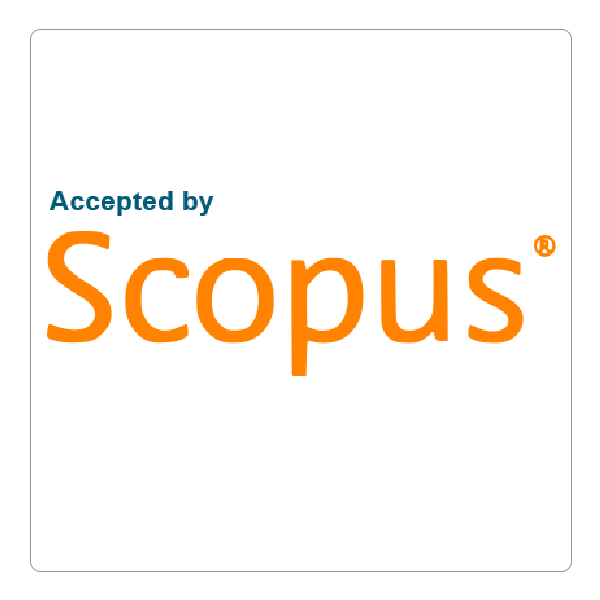

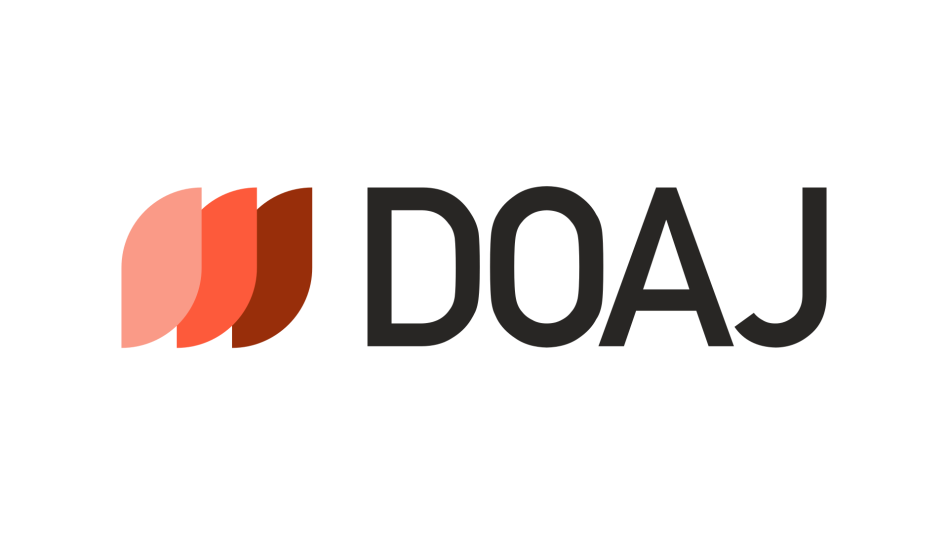
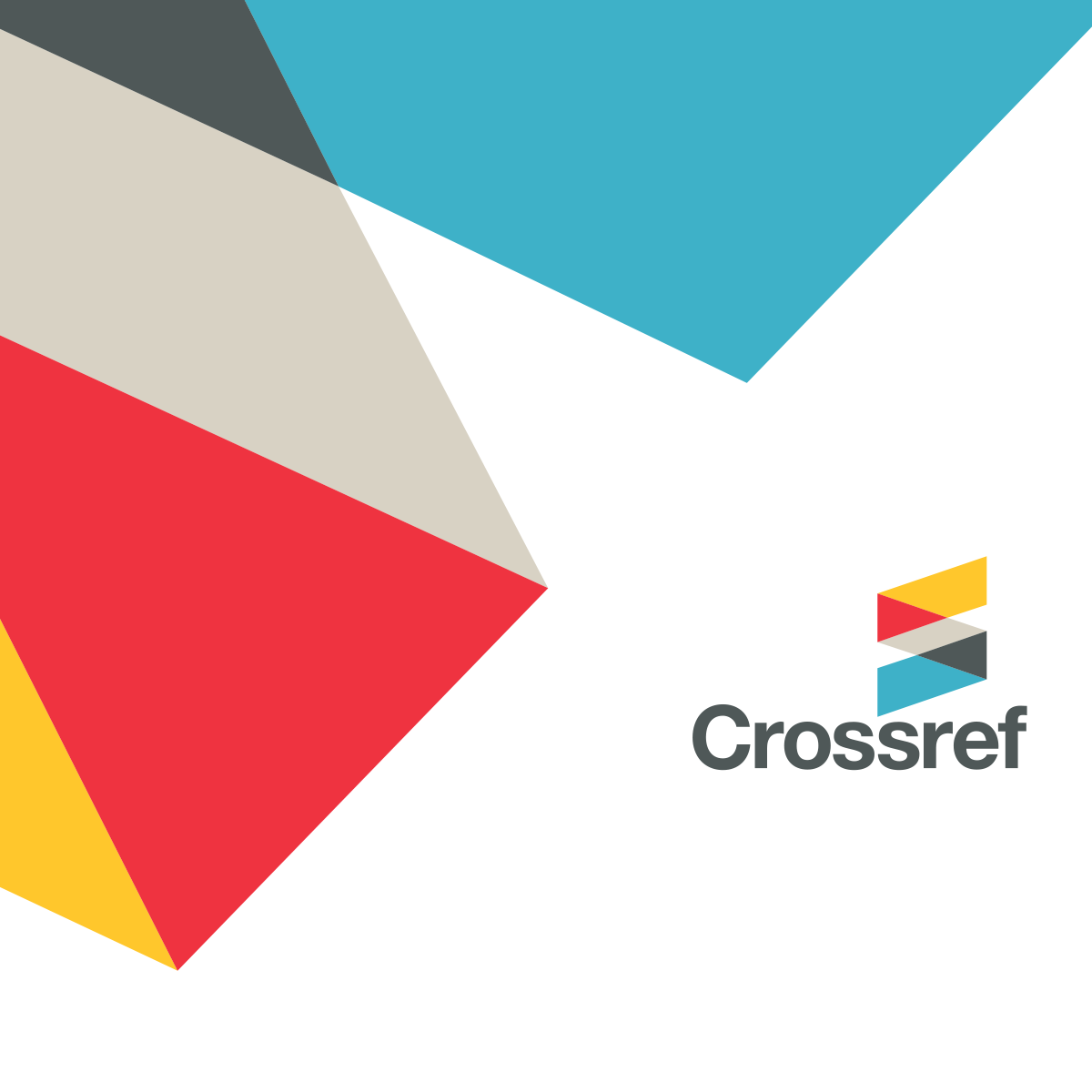
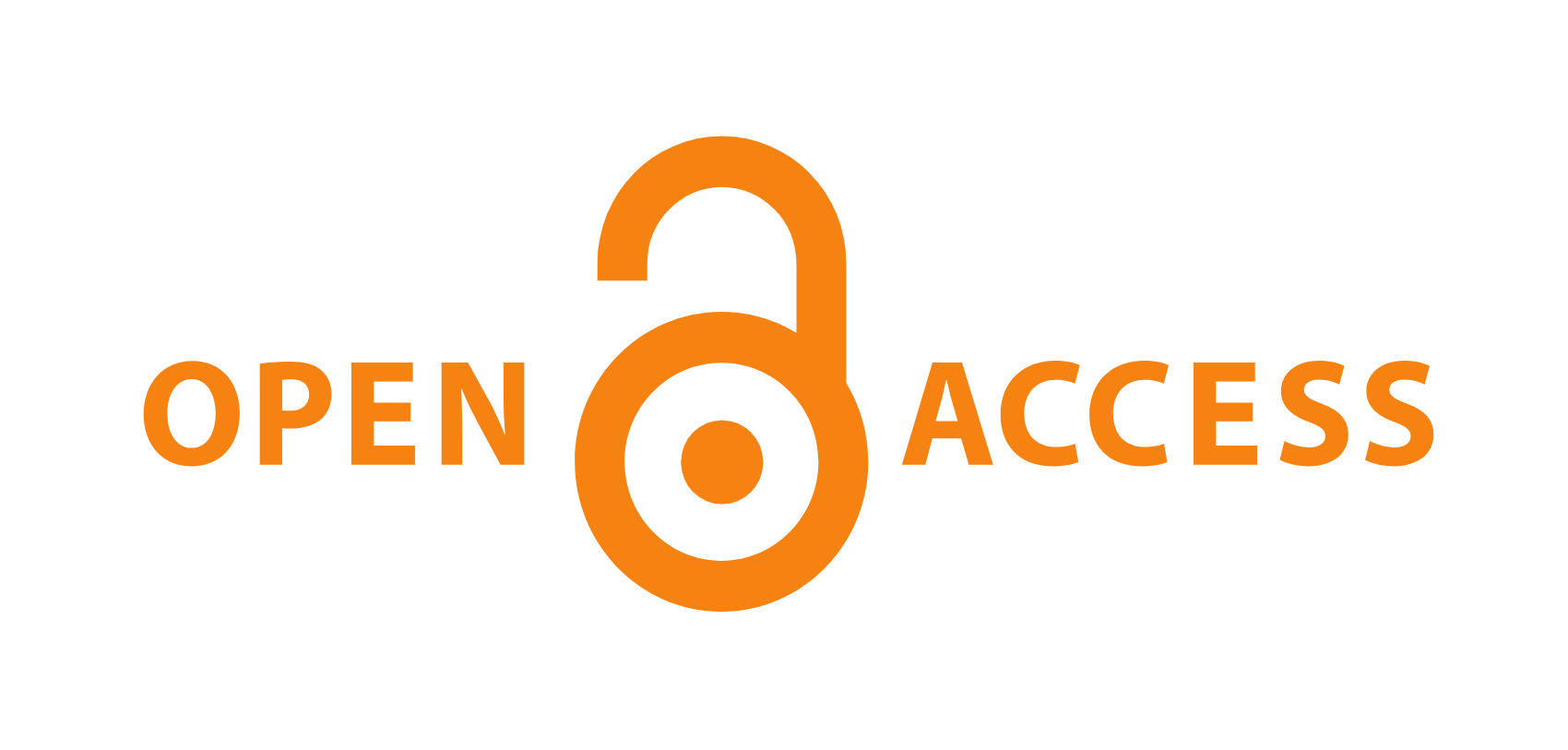


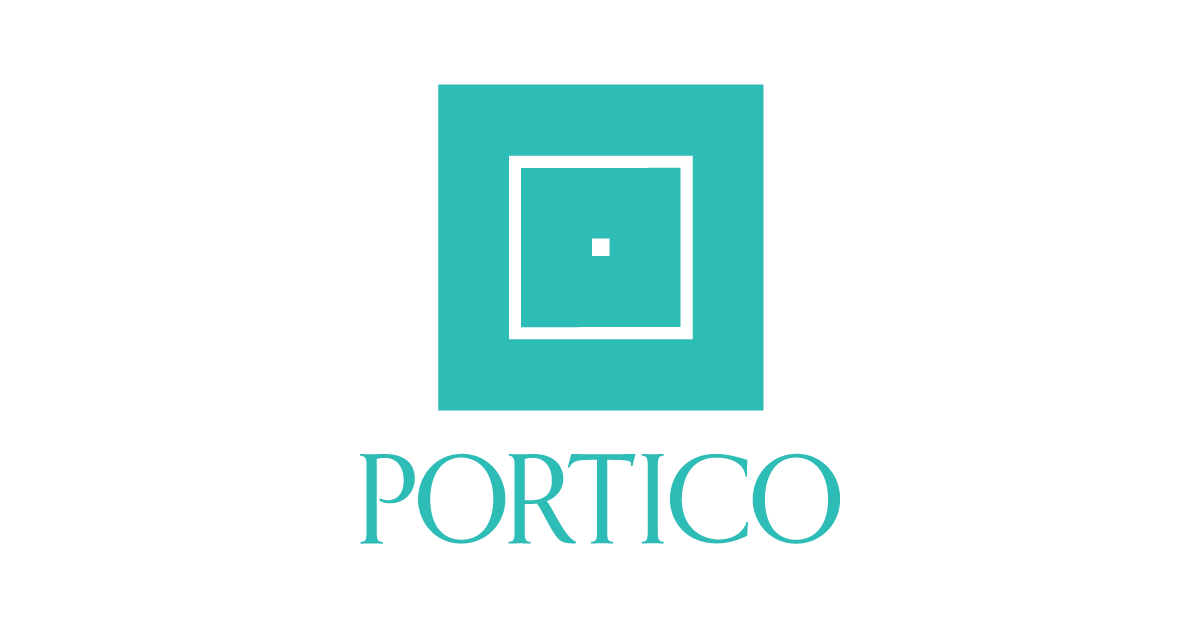

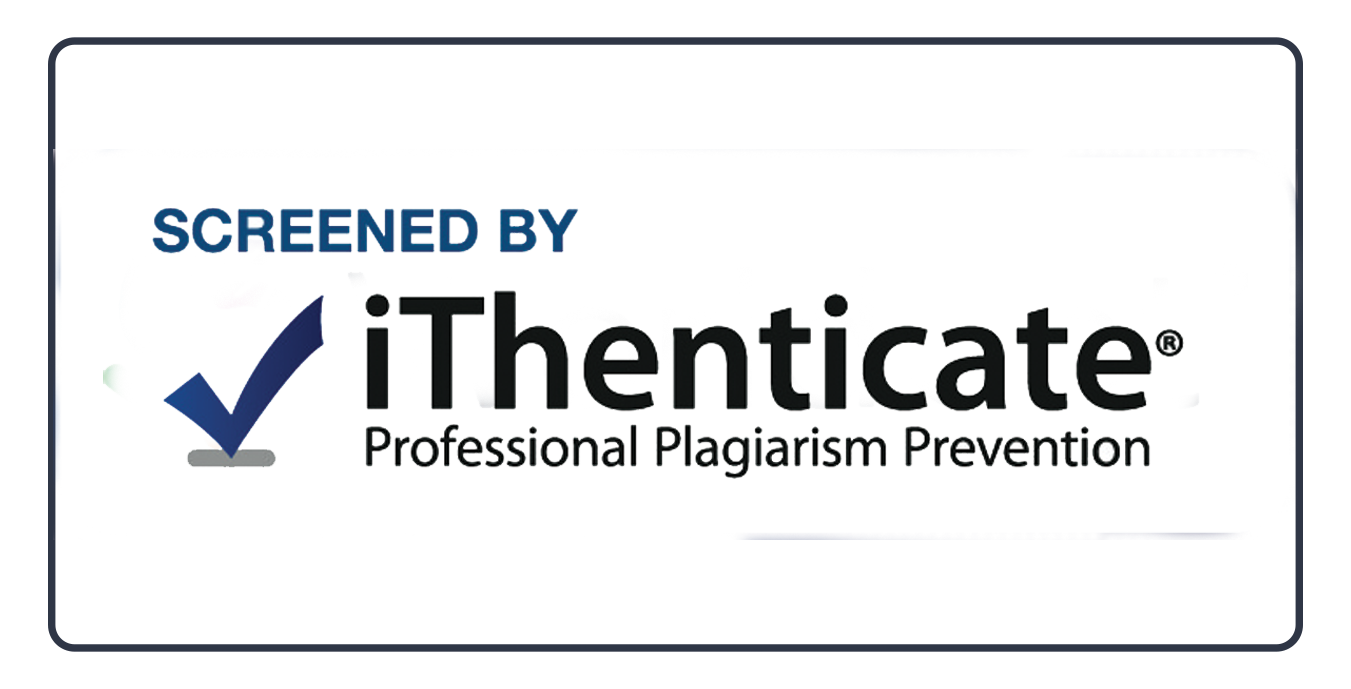
Follow us: